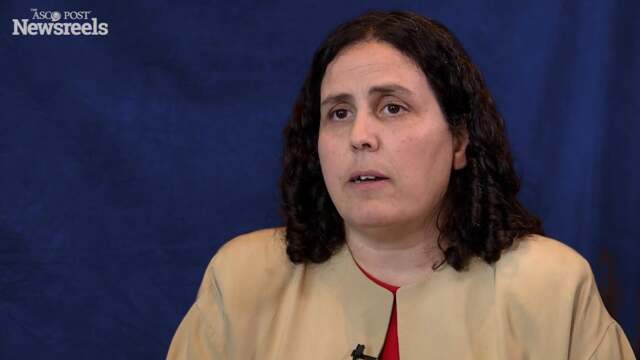Toby C. Campbell, MD, on Palliative Care: Patient and Provider Perspectives
2016 NCCN Annual Conference (1)
Toby C. Campbell, MD, of the University of Wisconsin Carbone Cancer Center, discusses palliative care, hospice care, and best supportive care practices, as well as the challenges of symptom management and end-of-life issues.
Anne Covey, MD, of Memorial Sloan Kettering Cancer Center, discusses the role of ablation and arterial-directed therapy in the treatment of hepatocellular carcinoma.
Kenneth Anderson, MD, of Dana-Farber Cancer Institute, discusses how the many advances in the treatment of multiple myeloma affect current and future clinical practice.
Rogerio Lilenbaum, MD, of Yale Cancer Center/Smilow Cancer Hospital, discusses the importance of tumor profiling for non–small cell lung cancer and strategies for treating EGFR-positive disease in the first-line setting.
Judith Paice, PhD, RN, of the Robert H. Lurie Comprehensive Cancer Center of Northwestern University, discusses strategies for safe opioid prescribing: making a comprehensive assessment, stratifying risk, using universal precautions, and educating practitioners on safe storage and disposal.
Kevin C. Oeffinger, MD, of Memorial Sloan Kettering Cancer Center, discusses American Cancer Society recommendations, including the advice that women with an average risk of breast cancer should undergo regular screening mammography starting at age 45, and that women 55 and older should have biennial screening.





